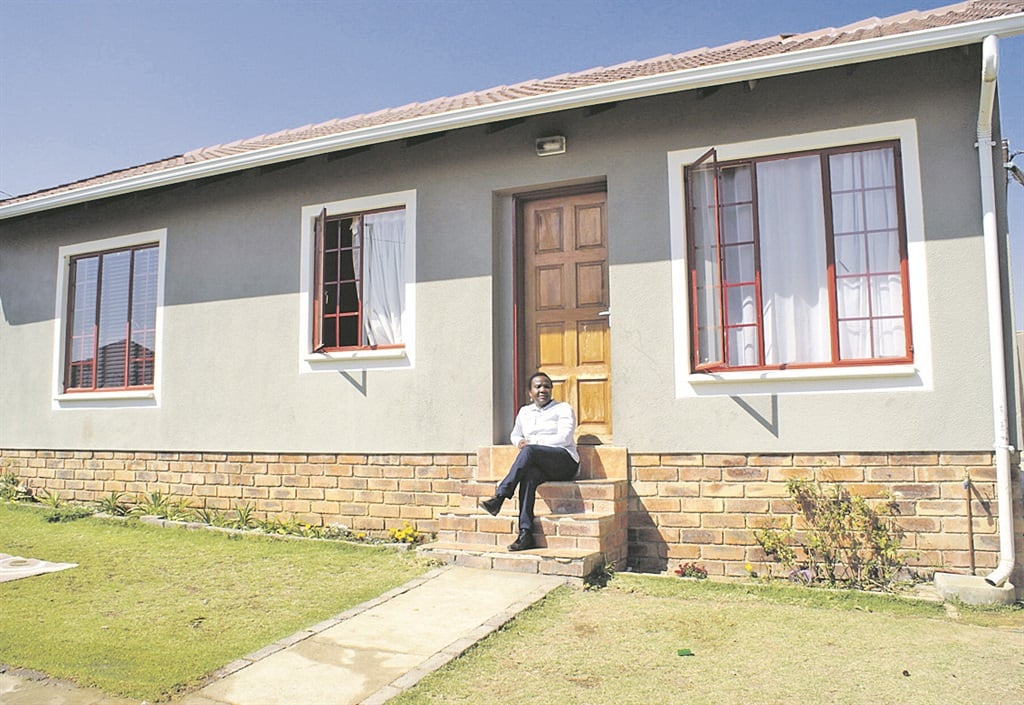
South Africa takes you places in Cosmo City, or the double-laned South Africa Road does, to be more specific.
The main road in Cosmo City is constantly buzzing with Avanzas, the local taxis, and cars hurrying to the new and “classy” Pick n Pay. Across town, a sleek bridge connects Cosmo City to the new mall.
“We are going places here,” says Marubini Matshisevhe (47), a teacher at Cosmo City’s new private school, Curro Meridian Cosmo City. “Every time you turn around, there is a brand-new shop or shopping centre.”
The first residents moved into Cosmo City 11 years ago and since then the township has evolved into a thriving community. More and more people are moving into its quirkily named streets, located about 25km northwest of the Johannesburg CBD, directly adjacent to Malibongwe Drive.
It was one the first major housing developments the government undertook to eradicate the poor spatial planning of the apartheid era, and to create neighbourhoods where rich and poor lived next to each other in harmony.
The City of Johannesburg and Gauteng provincial government designed the township as an integrated, mixed-use housing development.
Significant effort has been put into Cosmo City to reflect the South Africa of today. The roads are all tarred; there is water-borne sanitation and prepaid electricity; and it
hosted a flagship solar water geyser project.
City planning consultant Jonathan Merril says developments such as Cosmo City are an excellent example of spatial planning and densification improved. “It was specifically designed for social inclusion and cohesion for diverse income levels.”
The project was essentially a public-private partnership between the provincial department of local government and housing, the City of Johannesburg and Codevco, a joint venture headed by construction company Basil Read and Kopano Ke Matla, the Cosatu trust.
Cosmo City was also founded to help resettle the residents of the Riverbend and Zevenfontein informal settlements, who all received RDP houses here.
The idea was to bring communities on the fringes into an inclusive neighbourhood, not far from their places of work.
“As opposed to what happened in apartheid, when people had to commute for more than an hour to get to work, people here have relatively easy access to Randburg, Midrand, Roodepoort, Sandton and even the CBD,” Merril explains. “This is an important step to normalising our cities.”
It was the easy commute that lured Matshisevhe to
Cosmo City back in 2007. She was living in Robindale and working as a teacher in Bryanston.
“But I missed the sense of community. I wanted to stay in a place where I felt I belonged, where my kids could live in a house with me.”
Matshisevhe immediately fell in love with a two-room house in Cosmo City’s Extension 5, the so-called exclusive section of the township where Tuscan bonded houses line the streets. She and her brother pulled together and bought the house in 2008.
“From the start I felt that this was my place,” she says.
Matshisevhe says you can either choose to belong, or hide away in your house here. “The community is open. There is a medley of cultures here, from Venda to Malawi and Mozambique. And everyone accepts you. We are a new community. No matter where you come from, you can live here.”
She moved to her current home five years ago.
“Extension 5 is definitely the place to live, but I found that the house was too small,” she remembers. Matshisevhe applied for a low-cost house in Extension 8, which is made up of bonded and low-cost houses, and moved in just after the World Cup. The bigger house has enabled her daughter to open a crèche in the garage.
The different sections of Cosmo City’s housing are clearly seen. The bonded houses are mostly found in extensions 3, 5, 7 and 8, and here residents strictly keep to city bylaws to protect their property values. The carefully set up residents’ associations patrol each addition to a house.
Residents refer to extensions such as Matshisevhe’s as “ko low cost”, which means “where the low-cost housing is”, and extensions such as 5 as “ko dibondong”, meaning “where the bonded housing is”.
“Extension 8 is called the police barracks,” Matshisevhe laughs. “Teachers, nurses, but especially police applied for a house here, because of our low salaries. It is quite safe because there are so many police in this neighbourhood.”
The different extensions all have a character of their own. A peculiarity of Cosmo City is that the roads have been named after other countries and US states.
Matshidiso Mogamisi (36) lives in Lesotho Crescent. She was one of the first residents and RDP beneficiaries, having lived in the old Zevenfontein squatter camp.
“November 11 2005 was the best day of my life. That is the day I received the keys to my home,” she remembers. “Ever since I moved here, my life has become so much more.”
Mogamisi, her five-year-old daughter and her 20-year-old brother live in the house. There are three other rooms that she rents out to tenants. She also operates a small tuck shop from there.
Like Mogamisi, many RDP beneficiaries run businesses from their homes, as their only incomes. These range from spaza shops to crèches, butcheries, car washes, hair salons and taverns.
Cosmo City’s developers originally estimated the township would house between 65 000 and 70 000 people. But it has ballooned and many believe there are now closer to 100 000 people here. The eight public schools can’t keep up, with as many as 60 children sometimes crammed into a class, says Matshisevhe. Many parents pinch their pennies to send their kids to the new Curro school.
Infrastructure is also struggling to keep up with the rising number of residents. Matshisevhe says the sewage system especially battles to handle the load.
Many new residents are tenants of “back houses”. Owners of RDP houses often add extra rooms or back houses on to their homes, leasing these out to tenants – and most of these additions run foul of city bylaws.
It was these alterations and additions to the RDP housing that led to Cosmo City going up in flames last year, when the Red Ants arrived to demolish the illegal buildings. For many residents this was a direct assault on their daily bread.
“Getting this house has enabled me to earn money,” says Mogamisi. “It helps me to make a good living and better my life.” Her original RDP house is now retrofitted with wooden flooring, and her kitchen sparkles.
Unfortunately, joblessness in Cosmo City is still rampant and for many residents there is no other income except through their extra rooms.
Some backyard businesses have flourished, such as the Jerusalem Car Wash that developed into a tavern. Its owner, Bigboy, has become quite a legend in Cosmo City and now operates the place to be seen at, the Antigua Lounge.
It only opens on Thursdays and Saturdays, says local mover and shaker Phashe Magagane (47). “They keep the riffraff out by charging a R30 cover charge.”
Antigua is not your average township tavern. Instead, sleek lines remind you of an up-market nightclub in Sandton. Security and rules are tight. Profits are huge.
Apart from Antigua, Matshisevhe says Cosmo City’s famed multipurpose centre is the township’s hottest spot. It was here that her teenage son, now one of Dainfern’s soccer coaches, rose through the football ranks.
“Coming to Cosmo City changed my life. It brought me opportunities and a real home,” she concludes. “I am indeed very happy to have found my way here.”




 Publications
Publications
 Partners
Partners








